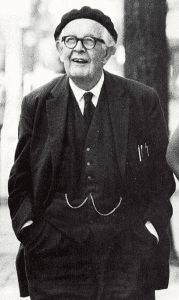We’re right in the middle of the series on C.S. Lewis.[1] Instead of posting an audio podcast, I thought I would speculate a little bit about Lewis and psychology, specifically language acquisition.
I’ll start with child development theory because apparently Lewis and J.R.R. Tolkien both studied how to approach writings for children. In fact, they both took a hit and received a little criticism for writing children’s books like The Hobbit and the Chronicles of Narnia.[2] However, they were a success. They studied children to the best of their ability in their time, and they were able to connect. They’re still connecting with children to this day.
I’m just going to briefly share some numbers from child development, specifically about language acquisition.
Video – Language Acquisition:
LEWIS, TOLKIEN, & PIAGET(?)
Basically what happens is what’s called a language explosion. I actually love watching this stage in children. There are some wonderful things that take place in young children as they acquire language.[3]
Language in Early Childhood
The numbers are:
100 – 2,000 words acquired by 2 years old
1,000 – 5,000 words by 3 years old
3,000 – 10,000 words by 4 years old
5,000 – 30,000 words by 6 years old
Average: 500 words by age 2 and 10,000 words by age 6
If anyone is afraid that your 6 year old doesn’t know 30,000 words . . . and you’re counting:
1) Do yourself a favor. Quit counting! That’s a little too O.C.D.
2) 10,000 words is 20,000 words less than 30,000, and that’s still within the range of average.[4]
There’s an interesting caveat to these numbers. If a household is bilingual, you never know how many words a child can acquire because of all that they’re picking up.
I think language acquisition is good to consider as we compare the works of Tolkien and C.S. Lewis
Again, there are many different theories on this age range and language acquisition. One of the most popular thinkers was Jean Piaget.
 Jean Piaget in Ann Arbor
Jean Piaget in Ann Arbor
University of Michigan | circa 1967 | Public Domain
Piaget probably had the most comprehensive development stage theory up to his time in the history of psychology.
He classified this age range as preoperational. He explained in many ways how thinking develops between ages 2-6. You might remember taking the tests in about 2nd grade (conservation tests: volume, matter, number, length).
Now Lewis and Tolkien may have never invited Jean Piaget to their writing group, The Inklings
However, who can argue with the fact that their books (The Hobbit and the Chronicles of Narnia) have been so widely accepted and read by children around the world? Certainly, they understood that children acquire language in unique ways. They sought ways to incorporate this into their writings.
Basic Questions:
My questions are simple, or so I think. They have to do with the church.
1) When I study how psychologists and writers (like Lewis, Tolkien, and Piaget) go to such great lengths to understand language and development, I wonder if we measure up as the people of God?
2) Is it really worth it to communicate with younger generations in a way that takes everything into account?
3) Do we even consider the myriad of child development theories as we prepare to share the Gospel?
Footnotes:
[1] This post is part of a series about C.S. Lewis.Aslan Acrostic: Dr. Thomas Woodward shares the story of C.S. Lewis
Vernell Ingle reflects on the works of C.S. Lewis
Vernell Ingle reflects on the works of C.S. Lewis, pt. 2
A Distinction in Ancient Literature (a/v)
Vernell Ingle reflects on the works of C.S. Lewis, pt. 3
On the Supernatural as the Natural Life (a/v)
Vernell Ingle reflects on the works of C.S. Lewis, pt. 4
[2] Take a moment to visit the author and book pages: [3] adapted from Kathleen Stassen Berger, “Early Childhood: Cognitive Development,” in The Developing Person Through the Life Span, 9th ed. (New York: Worth Publishers, 2014).Amazon: The Developing Person Through the Life Span
For instance, one of our sons was a little behind in this area as a young child. However, he has absolutely no trouble talking to anyone now, with quite an extensive vocabulary. He was just enamored with physical play at a stage when others were advancing a little more in language. This is actually very common.
Another common factor is that some children are more relationally oriented. On a daily basis a third child will probably hear a lot more words, and have more social interactions in the house, than a firstborn or only child.
There are other common factors like these, so please enjoy every stage of your child’s development without a measuring rod!
If necessary, let experts do real testing, and don’t ever be afraid to ask for a second opinion.













